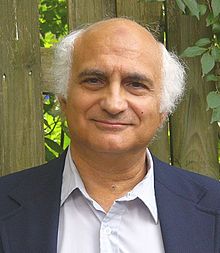Imad-ad-Dean Ahmad in Atlantis:
 The history of Islam’s relation to science has largely been one of harmony. It offers no real parallel to the occasional bouts of suspicion toward science that the Christian world experienced. Today, many Muslims can be found in the fields of medicine and engineering. Even the ultraconservative Muslims who long for a return to the ethical norms of the seventh century see no need to abandon cell phones to do so, and even the most extreme of Islamic extremists envies the high-tech oil-extraction techniques and the weaponry of the West. Muslims, both conservative and liberal, issue fatwas (legal opinions) over the Internet without any hesitation over the technology they employ and with no fear that it may be haram (prohibited).
The history of Islam’s relation to science has largely been one of harmony. It offers no real parallel to the occasional bouts of suspicion toward science that the Christian world experienced. Today, many Muslims can be found in the fields of medicine and engineering. Even the ultraconservative Muslims who long for a return to the ethical norms of the seventh century see no need to abandon cell phones to do so, and even the most extreme of Islamic extremists envies the high-tech oil-extraction techniques and the weaponry of the West. Muslims, both conservative and liberal, issue fatwas (legal opinions) over the Internet without any hesitation over the technology they employ and with no fear that it may be haram (prohibited).
However, although contemporary Muslims tend not to be averse to science or technology, their strong belief in the compatibility of science and Islam may leave them vulnerable to dubious efforts to equate the two. The effort to harmonize modern technical knowledge and practice with Islamic teaching is part of a project known as the “Islamization of knowledge,” and is quite popular among Muslim intellectuals today. The most visible area of this intellectual work has been in the world of finance, with the development of so-called “Islamic banking.” A wide variety of venture-capital investments, joint-development projects, and partnership financing have been devised to avoid the appearance of charging interest, a practice forbidden by traditional Muslim jurisprudence. On a smaller scale, there has been a rising interest in bringing the sciences into a conversation with Islamic teachings.
An offshoot of this project takes an absurd turn: it attempts to demonstrate, in effect, that the Koran is a scientific textbook — that it is not merely compatible with science but actually foretells and validates specific modern scientific theories. This movement is troubling in part because it is becoming associated with the term “Islamic science,” which has long been used to refer to the medieval Golden Age during which the Muslim world made important contributions to natural philosophy, medicine, and mathematics. Confusing this new movement with that important period is a disservice to history. Moreover, this new movement to seek out science in the Koran is contrary to the scientific method and, in ignoring the Koran’s warning against confusing allegory with basic facts (3:7), is contrary to Islamic teaching.
More here.
